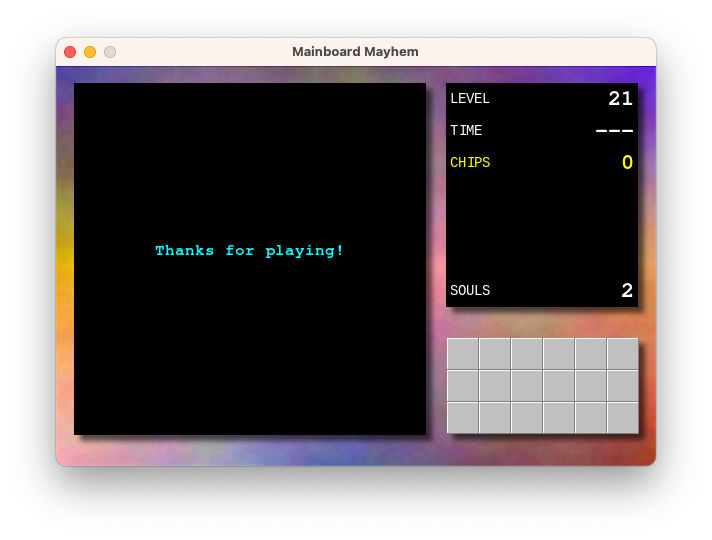-
Day 5: forest
I consider myself extremely lucky to live near a forest reserve. I walk through it several times a week. This forest, however, is absolutely nowhere near me. #mbsept

-
Alternative Day Four Photo
I had an alternative idea for today’s photo challenge, which is “orange”. I was hoping to post a photo of something related to Melbourne’s busses. You see, PTV has designated different colour for different modes of transport. Blue for metro trains, purple for regional trains, green for trams, and orange for busses. And from my experience using the service, they’re pretty consistent with adhering to this design language: Anyway, they’re doing train works along my rail line over the past few weeks and this morning I noticed this sign (forgive the lighting, it was before dawn): Continue reading →
-
Day 3: precious
A photo of the Hope Diamond, taken while touring the Smithsonian Museum of Natural History, in Washington, DC. #mbsept

-
I only just discovered yesterday that Feedbin has a read-it-later feature. The section only shows up in the sidebar after you add your first page, so I had no idea that this feature existed before I added one via the link popup-menu in the article viewer.
-
Day 2: buildup
New shed being built nearby to house the spoil from a new road tunnel. It’s quite large. I guess they’re expecting quite a large build-up of dirt. #mbsept

-
Day 1: abstract
Photo of an abstract(ish) sculpture of Bunjil, an eagle regarded as the spirit creator of the Kulin nations. #mbsept

-
Feels good putting up another project on my omg.lol page.
Feels less good when I realised that I actually got the name of my own damn project wrong in the blog post I wrote yesterday. 🤦
-
Mainboard Mayhem
Project update on Mainboard Mayhem, my Chip’s Challenge fan game. I didn’t get it finished in time for the release deadline, which was last weekend. I blame work for that. We’re going through a bit of a crunch at the moment, and there was a need to work on the weekend. The good news is that there wasn’t much left to do, and after a few more evenings, I’m please to say that it’s done. Continue reading →
-
GitLab is requiring me to manually click “automatically rebase” when I try to merge a MR. This option is only available after the CI/CD runs, which means I have to wait for the build, click “rebase”, and wait for another build before I can merge. Why doesn’t it just rebase automatically if it can?
-
Missed the train this morning, but grabbed a photo of it travelling back to Newport this evening. 🚂

-
A note to self for next year: the steam-train for the Wattle Festival comes through at around 9:00. Try to be around the railway line around then. 🚂
-
I got a phising message last night. At least, I think it was a phishing message.
It was pretty convincing. It said that my address is wrong and needed to be fixed for a delivery. Clicking through — I’m actually expecting a delivery, which is why I clicked through — brought up a site that looked like a form from AusPost asking for my home address. It was styled like an AusPost site, but the domain ended in “.top” instead of “auspost.com.au”, and revealing the menu, which worked, I saw links pointing to the real AusPost site.
I’m taking all this, plus the fact that it was sent at 2 AM, as signal that it’s not genuine.
-
Seeing a lot more EVs driving around recently, with the record being 12 sightings during one commute. Not all of them have witty number plates thought.
-
Currawong close-up (okay, not really, but any closer and it’ll fly away).

-
While passing this sign on the way to work, I always wonder if they ever considered the name Catstruction.

-
The ice bus returneth. 🚌🥶
-
I’m sorry, but Apple’s magic mouse and keyboard are the absolute worst. I’m making so many typing errors on the keyboard and scrolling with the mouse is absolutely impossible. I’m willing to admit that I’m just not use to them but gosh I wouldn’t choose them if they weren’t provided by work.
-
My recent YouTube watching has been about theme-parks, predominantly Disney. I’m not an theme-park enthusiast but I found both Theme Park History and Defunctland really interesting channels to watch. HT to Reconcilable Differences and Really Specific Stories, which mentioned the two channels. 📺
-
Can someone follow you on Substack without you even having a Substack? I have an account but I’m just a reader; I don’t publish anything there. Yet somehow I got a follower. They may be disappointed as I do my Substack subscribing via Feedbin.
-
I have passing fancies of re-theming this blog, mainly to improve the style of code excerpts. I resist the temptation, not only because I’ve grown to like the current theme, but I’d like to avoid posting too much code here. I can post code elsewhere. This site can be about other things.
-
Project update for Mainboard Madness. Well, today’s the deadline for getting the thing code complete, and what a surprised, it’s not finished.
To be fair, it’s pretty close. All the levels are more or less done, and the beats of the in-game lore have been added. It all just needs tightening up a little. I spent today working on the end-game phase, which mainly involved coding up the credit sequence, and making sure I include credits for those involved in the original game (and who’s artwork I lifted).

The work remaining is to finish one or two game elements, adding a proper app icon, and finishing off the website. I’m wondering whether to add sound, but I feel bad enough taking the artwork from the original game, I rather not take the sound effects as well. That will mean the game will remain silent for the time being, but I can probably live with that for now.
I think we’re still on track for getting this finished by this time next week. Last dash to the finish line, then I can put this 9 year project to rest for a while.
-
Visited my Nonna this afternoon and showed her some photos of my recent trip to Italy. I had some concerns that I may have gotten the town she grew up in wrong. But turns out I visited the right one, and she was really happy to see photos of it.
-
I do like the idea of a personal changelog but I know that I’ll need to have some way to automatically create entries when I post to blogs, make changes to repostories, etc. If I had to maintain it manually, it’ll just be one more thing that I neglect.
-
Got some, shall we say… “pointers” about how we could improve the code-base we’re working on at work.
As much as it hurts my ego to hear someone making suggested improvements without fully taking into consideration the context in which that code was originally written (learning the service the code was interacting with, under pressure to deliver it by a given deadlines, etc.), I’ll admit on the whole the feedback is fair enough. I know there are times where I tend to gloss over the finer details of the code I write as part of a team. And that I treat things like sufficient observability metrics, proper naming, and decent logging, to be mere afterthoughts over getting the code to actually work and moving on to the next task. I’ll try to do better there.
There’s one thing I will make a comment on. A few suggestions were of using shared utilities, like core libraries managed centrally, for things that were written in the moment. Here’s the thing about shared utilities: I won’t be aware of, or forget about, their existence unless I have a hand in writing them. You can do things like announce them in Slack, but unless I have an opportunity to start using them right there at that moment — an opportunity that rarely comes up — I’ll eventually forget about them and just fall back to plowing through in my own way. Getting me to review to them will probably work (or, more likely, forcing me to review them; keeping up with code reviews is another thing I’m pretty terrible at).
Anyway, I think my ego’s sufficiently soothed now. I’ll start writing up tickets to get these fixed.
